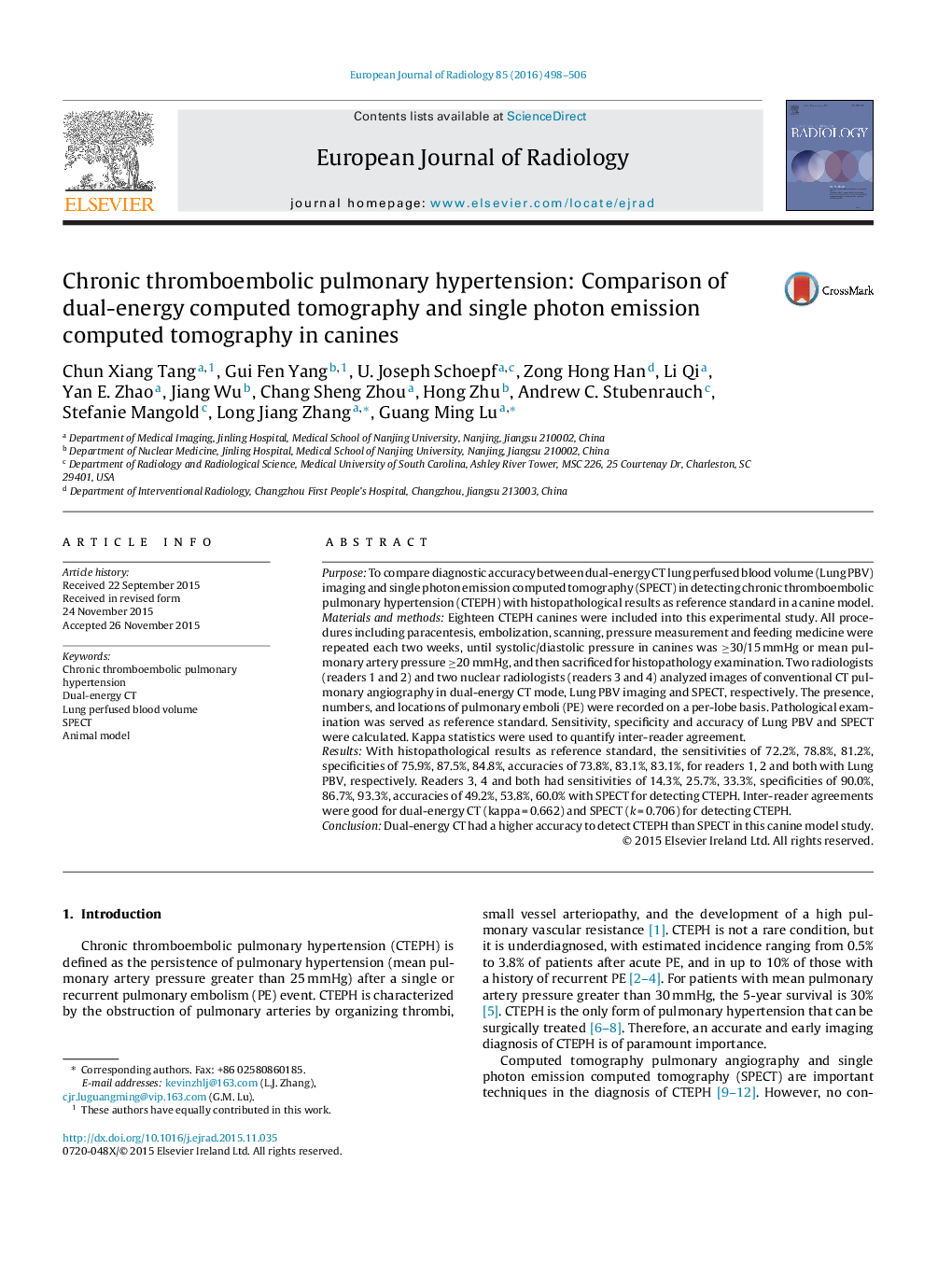| کد مقاله | کد نشریه | سال انتشار | مقاله انگلیسی | نسخه تمام متن |
|---|---|---|---|---|
| 4225090 | 1609745 | 2016 | 9 صفحه PDF | دانلود رایگان |
PurposeTo compare diagnostic accuracy between dual-energy CT lung perfused blood volume (Lung PBV) imaging and single photon emission computed tomography (SPECT) in detecting chronic thromboembolic pulmonary hypertension (CTEPH) with histopathological results as reference standard in a canine model.Materials and methodsEighteen CTEPH canines were included into this experimental study. All procedures including paracentesis, embolization, scanning, pressure measurement and feeding medicine were repeated each two weeks, until systolic/diastolic pressure in canines was ≥30/15 mmHg or mean pulmonary artery pressure ≥20 mmHg, and then sacrificed for histopathology examination. Two radiologists (readers 1 and 2) and two nuclear radiologists (readers 3 and 4) analyzed images of conventional CT pulmonary angiography in dual-energy CT mode, Lung PBV imaging and SPECT, respectively. The presence, numbers, and locations of pulmonary emboli (PE) were recorded on a per-lobe basis. Pathological examination was served as reference standard. Sensitivity, specificity and accuracy of Lung PBV and SPECT were calculated. Kappa statistics were used to quantify inter-reader agreement.ResultsWith histopathological results as reference standard, the sensitivities of 72.2%, 78.8%, 81.2%, specificities of 75.9%, 87.5%, 84.8%, accuracies of 73.8%, 83.1%, 83.1%, for readers 1, 2 and both with Lung PBV, respectively. Readers 3, 4 and both had sensitivities of 14.3%, 25.7%, 33.3%, specificities of 90.0%, 86.7%, 93.3%, accuracies of 49.2%, 53.8%, 60.0% with SPECT for detecting CTEPH. Inter-reader agreements were good for dual-energy CT (kappa = 0.662) and SPECT (k = 0.706) for detecting CTEPH.ConclusionDual-energy CT had a higher accuracy to detect CTEPH than SPECT in this canine model study.
Journal: European Journal of Radiology - Volume 85, Issue 2, February 2016, Pages 498–506
